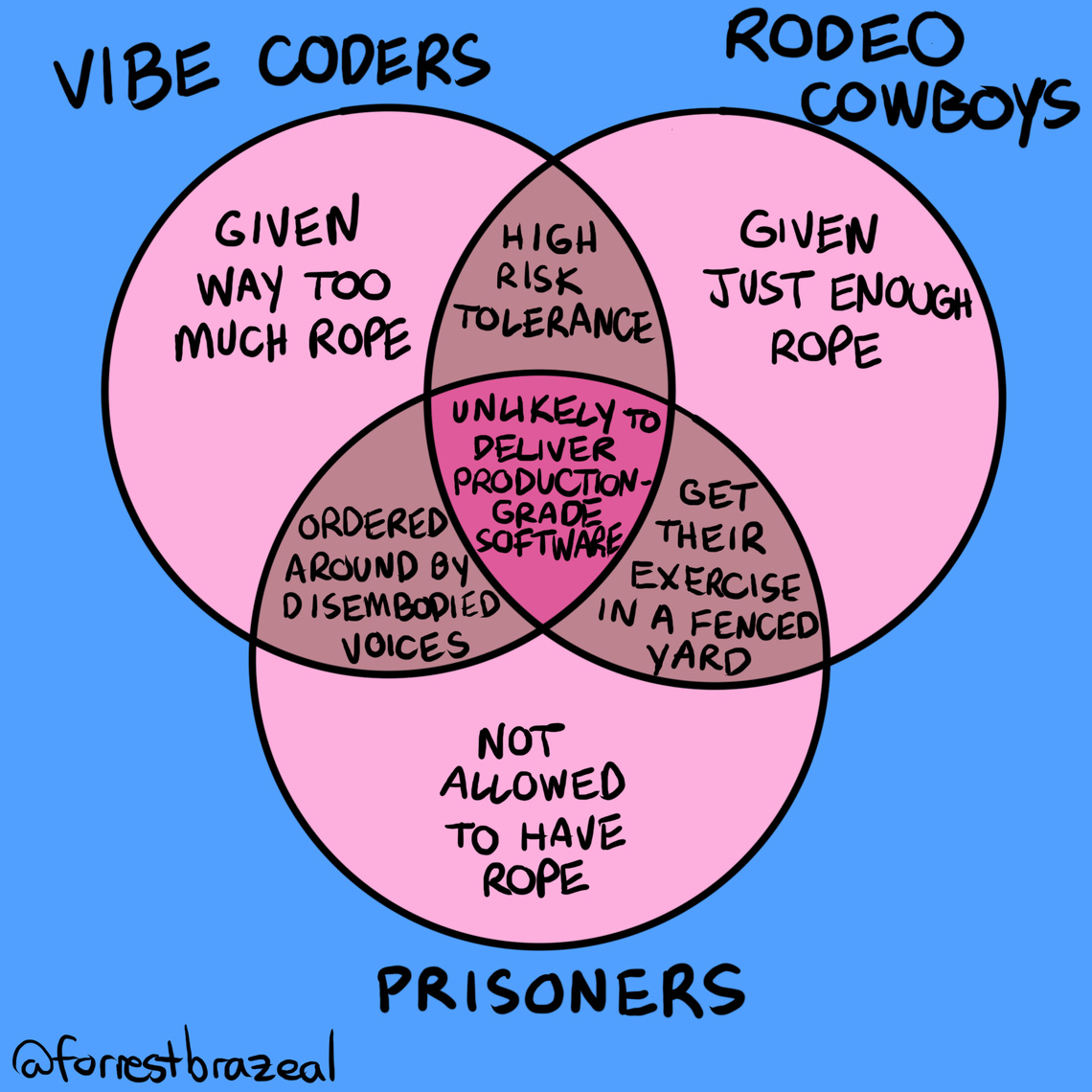When everybody's down, nobody is
you want a take about the AWS outage? fine, here's a take
AWS us-east-1 went down hard this week and took half the internet with it. This happens every 12-18 months or so. Amazing it doesn’t happen more frequently, tbh.
As always you have the Monday morning sysadmins chiming in with:
This is why you use a different cloud
This is why you multicloud
This is why you don’t cloud at all
All boiling down to: this is why you should build a stupendous edifice of technological wizardry that is IMMUNE TO AWS US-EAST-1 GOING DOWN.
You mortal fools! We are paying the price for our hubris of science. Don’t you see? It doesn’t matter what your app architecture is. If AWS falls over, you are going to be affected NO MATTER WHAT.
It’s not that AWS is too big to fail. AWS has become too big for you to avoid failing.
I don’t care what the uptime of your haunted palace of Kubernetes is. If AWS is down, your vendors might be down. At least some of your integrations will surely be down. A whole bunch of your customers—you know, the people who have to be online in order to use your product—are guaranteed to be down. The CEO of Vercel found out about this outage because his bed died. At some point, if you want to do business, your app has to come in contact with the real world, and the real world runs on AWS.
“But we vet our vendors / we are EU-regulated / blah blah ….” Please. The dependencies of these systems are way beyond your ability to be confident that AWS isn’t involved somewhere up the chain. Evelyn Osman is a platform engineer in Germany. She says “We use preset.io in their Stockholm location and they were impacted because they use Docker Hub so one of the components couldn’t scale out during the outage. We’re EU regulated and yet integrations had issues.”
Let the reader understand: AWS falling over is the internet apocalypse. You people imagining hermetically-sealed no-AWS environments are doomsday preppers. Your doomsday island only protects you until you get an infected hangnail and need a doctor. Then you’re right back out in the real world, where, oops, the doctors are powered by AWS.
But take heart. This is not bad news. This is joyous news. Here is the ancient wisdom, learned by all those people who didn’t get fired for buying IBM: when everybody’s down, nobody is down.
Look, my whole business is based on paying very close attention to what people are saying about tech companies on the internet. Were developers up in arms, furious, vengeful, because their favorite tools experienced “elevated error rates” this week? For the most part, no, they were not. Nobody experienced brand damage because of the AWS outage. Not even AWS. Honestly, it just adds to their mystique.
An AWS outage at this point is like an act of God. You sigh, you implement whatever disaster plan you have, you patch a few holes for next time, you move on to the next problem. Your customers aren’t going to leave you because AWS went down.
Where are they gonna go?


Well said! "An AWS outage at this point is like an act of God." Yeah...It's like... a hurricane. When your code is in the cloud, it will be subject to thunderstorms.
Love this!! Would love your thoughts on some of my stuff, follow me back I could DM you?